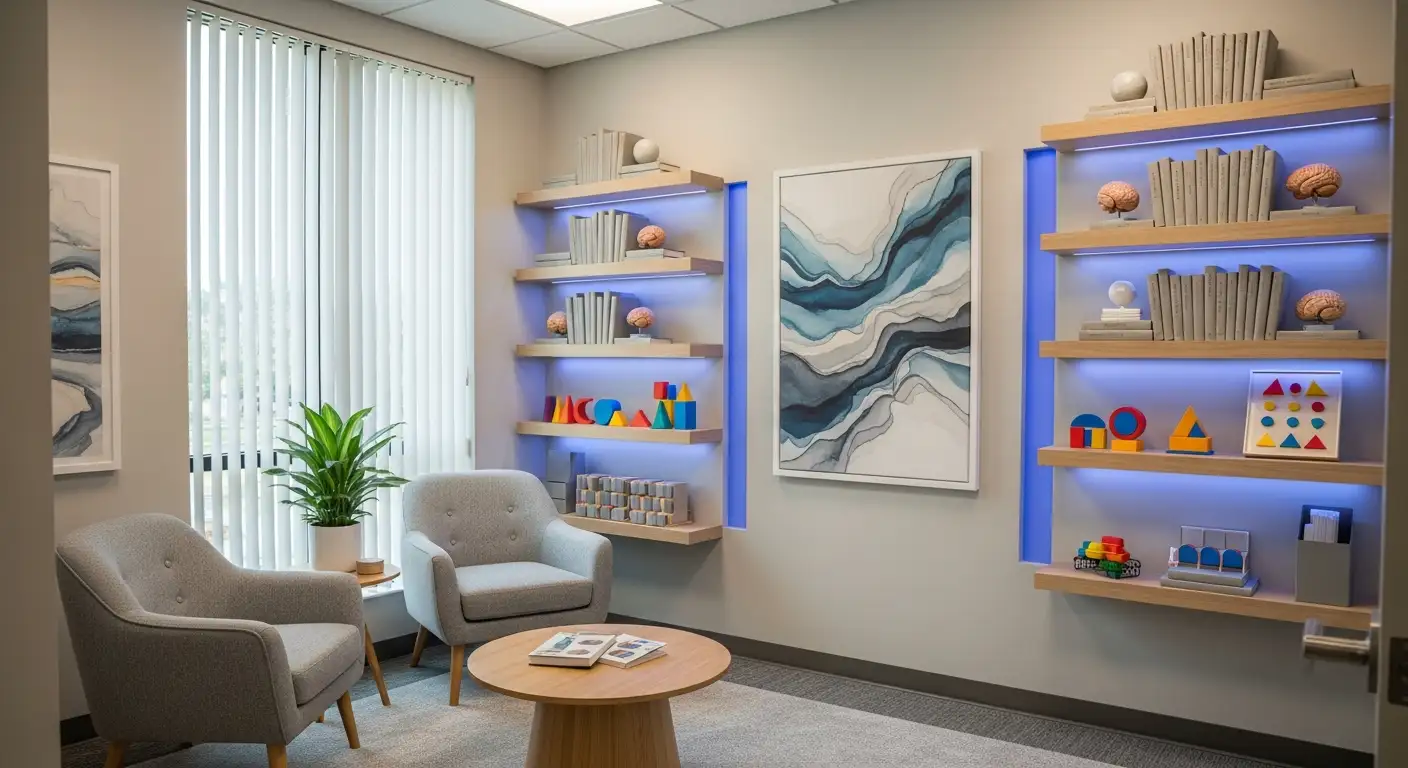Understanding the Role of ABA Therapy in Conflict Resolution
Applied Behavior Analysis (ABA) therapy, initially developed to support children with autism and attention-related challenges, has proven exceptionally effective in fostering conflict resolution skills in children. By employing scientific, evidence-based behavioral strategies, ABA therapy helps children develop essential social skills, manage disruptive behaviors, and navigate social conflicts with greater confidence and success. This article explores how ABA therapy supports conflict resolution in children, highlighting key techniques, therapeutic structures, and the collaborative roles of therapists, parents, and educators.
Foundations of ABA Therapy in Enhancing Social Competencies
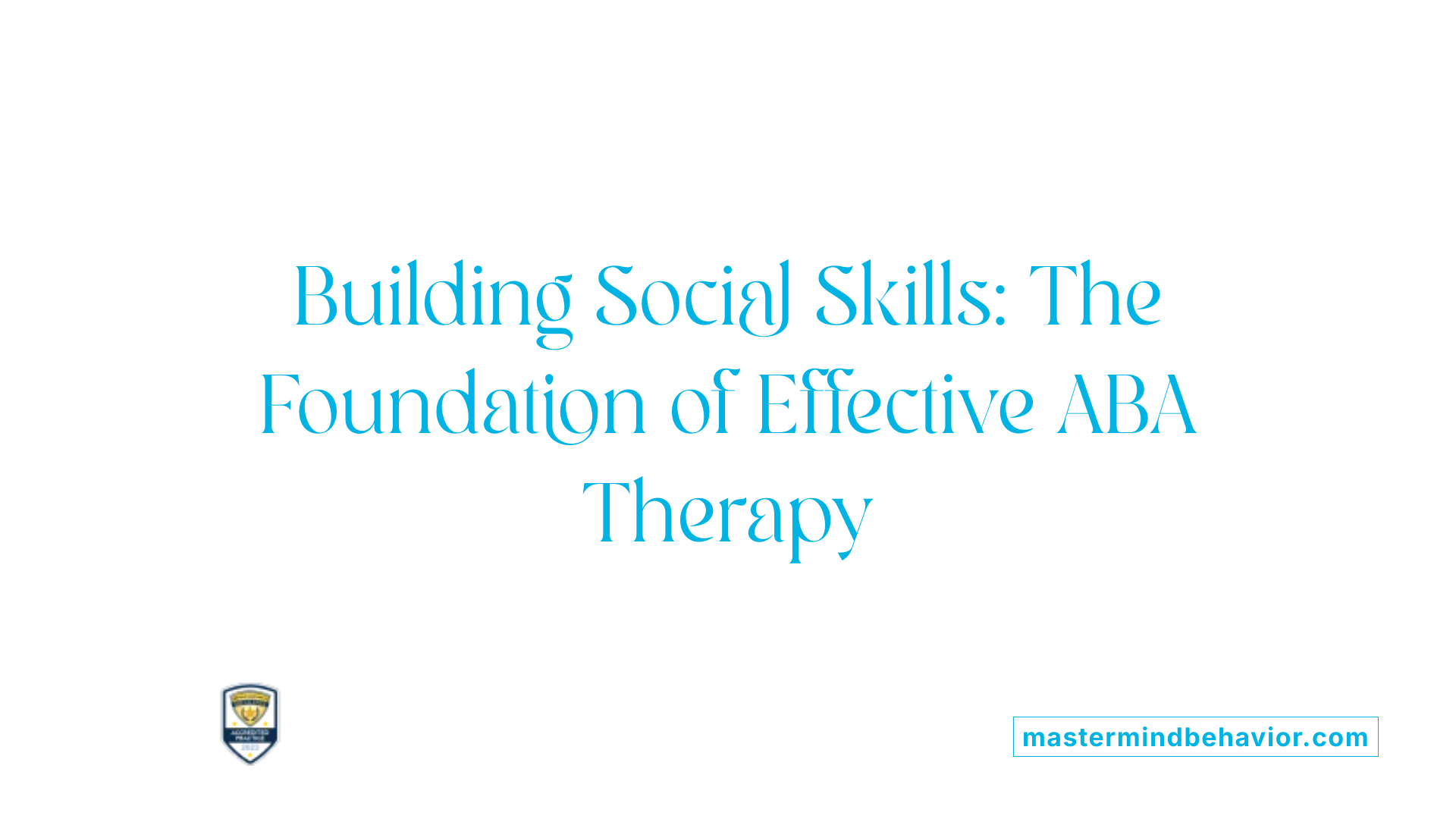
What is ABA therapy and how does it relate to social skills?
ABA (Applied Behavior Analysis) is a scientific, evidence-based approach grounded in learning theory. It focuses on understanding and improving observable behaviors, specifically targeting areas like social skills development in children.
Core Techniques in ABA for Social Skills Development
ABA employs several key techniques to build and enhance social behaviors:
- Behavioral Modeling: Therapists demonstrate appropriate social interactions, which children then observe and imitate.
- Prompting: This involves providing cues or guidance to assist children in performing desired social behaviors.
- Reinforcement: Positive reinforcement is used to encourage and motivate children to engage in appropriate social actions.
- Social Skills Training: Structured activities and role-playing teach specific skills like initiating conversations, active listening, and conflict resolution.
Focus on Observable Behaviors
ABA's emphasis on observable and measurable behaviors allows therapists to tailor interventions precisely, ensuring children learn critical social competencies. These structured programs often include one-on-one sessions, group activities, and real-world practice scenarios to reinforce learning.
Through these methods, ABA therapy supports children in developing essential social interactions such as making eye contact, sharing, taking turns, and interpreting social cues, laying the groundwork for improved communication and relationships.
Tailored Assessments and Structured ABA Programs for Conflict Resolution

How are assessments conducted to tailor ABA therapy for conflict resolution?
Proper ABA treatment for children with ADHD begins with thorough assessments led by a Board Certified Behavior Analyst (BCBA). These assessments involve detailed interviews with parents and teachers to gather insights on the child’s behavior in different settings. Additionally, direct observations of the child’s actions provide objective information about triggers and responses.
A critical part of this process is conducting a functional behavior assessment (FBA). This assessment identifies the reasons behind problem behaviors, such as conflicts, by evaluating their function and motivation. Understanding these underlying causes allows the BCBA to design individualized strategies targeting specific needs.
Once the assessment is complete, the BCBA develops a well-structured treatment plan. This plan aims to increase the child’s strengths, teach replacement behaviors that serve as healthier ways to handle conflicts, and reduce disruptive behaviors by emphasizing their ineffectiveness.
To support conflict resolution skills specifically, ABA therapy often incorporates techniques like task analysis and discrete trial training. Task analysis breaks down complex social interactions and conflict scenarios into smaller, manageable steps. Discrete trial training then provides systematic teaching of each step through repeated, focused practice. This structured learning ensures children develop effective ways to navigate conflicts in real life.
By combining collaborative input from caregivers and educators with precise behavioral analysis, ABA therapy provides tailored support to help children with ADHD build the skills necessary for successful conflict resolution.
Core ABA Techniques Empowering Children to Manage and Resolve Conflicts
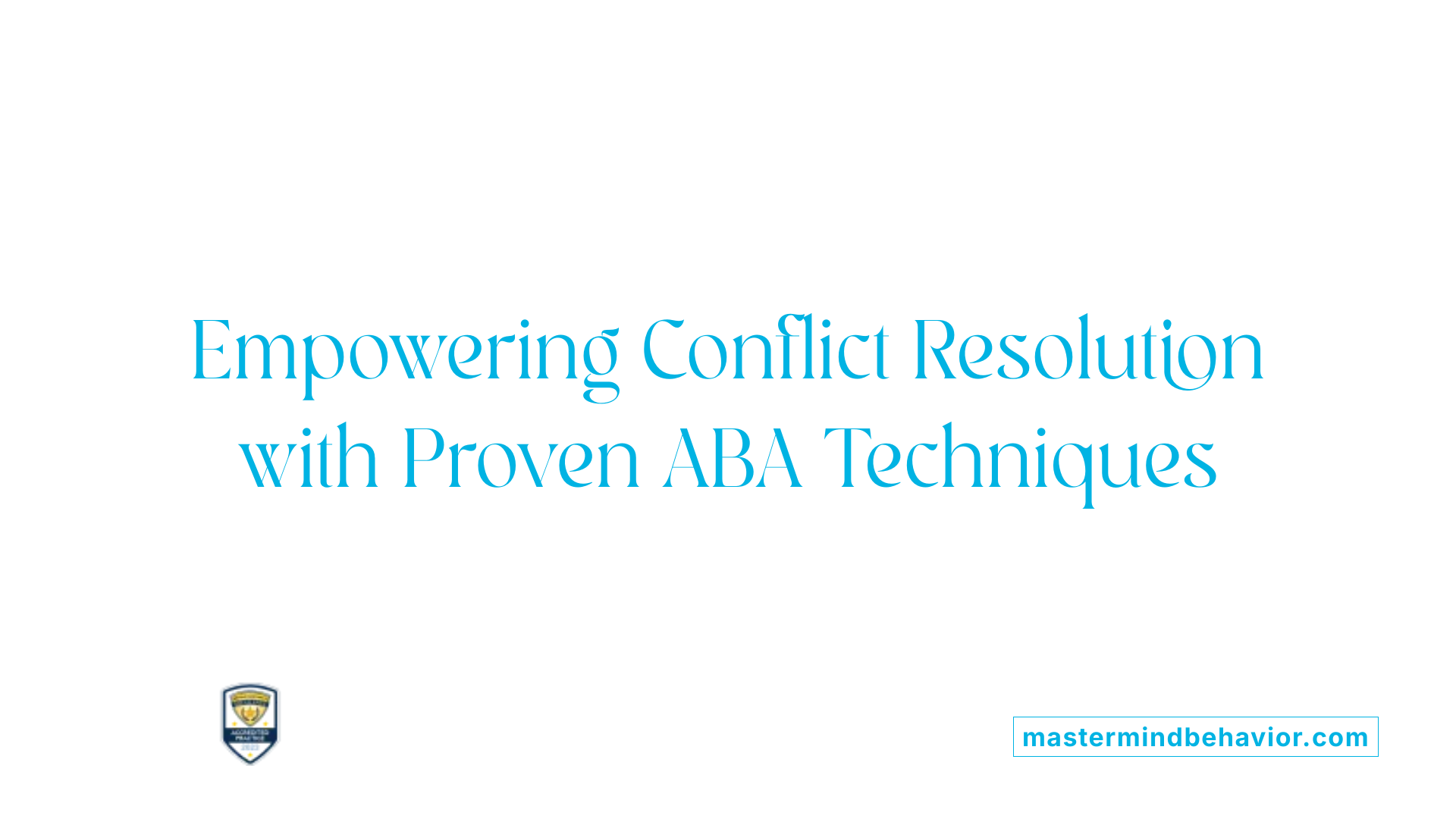
What ABA techniques help children develop conflict resolution skills?
ABA therapy employs a variety of evidence-based techniques that empower children with ADHD to manage and resolve conflicts effectively. One important method is differential reinforcement, which encourages children to replace problematic behaviors with positive actions by rewarding desired behaviors and discouraging negative ones.
Self-management training teaches children to monitor and regulate their own behavior, fostering independence and helping them control impulsive reactions during social interactions. Another vital approach is behavioral modeling, where therapists demonstrate appropriate social behaviors such as sharing, turn-taking, and expressing feelings calmly, allowing children to observe and imitate these skills.
To explicitly teach social skills, ABA uses structured activities and role-playing exercises. These sessions focus on initiating conversations, maintaining eye contact, sharing with peers, and navigating conflict resolution by practicing respectful communication and problem-solving strategies in a safe, guided environment.
Additionally, therapists integrate specialized frameworks like the Zones of Regulation, which helps children recognize and manage their emotional states, and Theory of Mind training, which enhances understanding of others’ perspectives and nonverbal cues. These tools are essential for interpreting social signals and responding appropriately during conflicts.
Social scenarios tailored to real-life situations teach children about boundaries, reciprocal behaviors, and relationship dynamics, ensuring the skills are applicable across home, school, and public settings. Through this comprehensive approach, ABA therapy not only reduces disruptive behaviors but also equips children with the social competence to resolve conflicts confidently and constructively.
Integrating Therapy with Natural Environments and Caregiver Collaboration
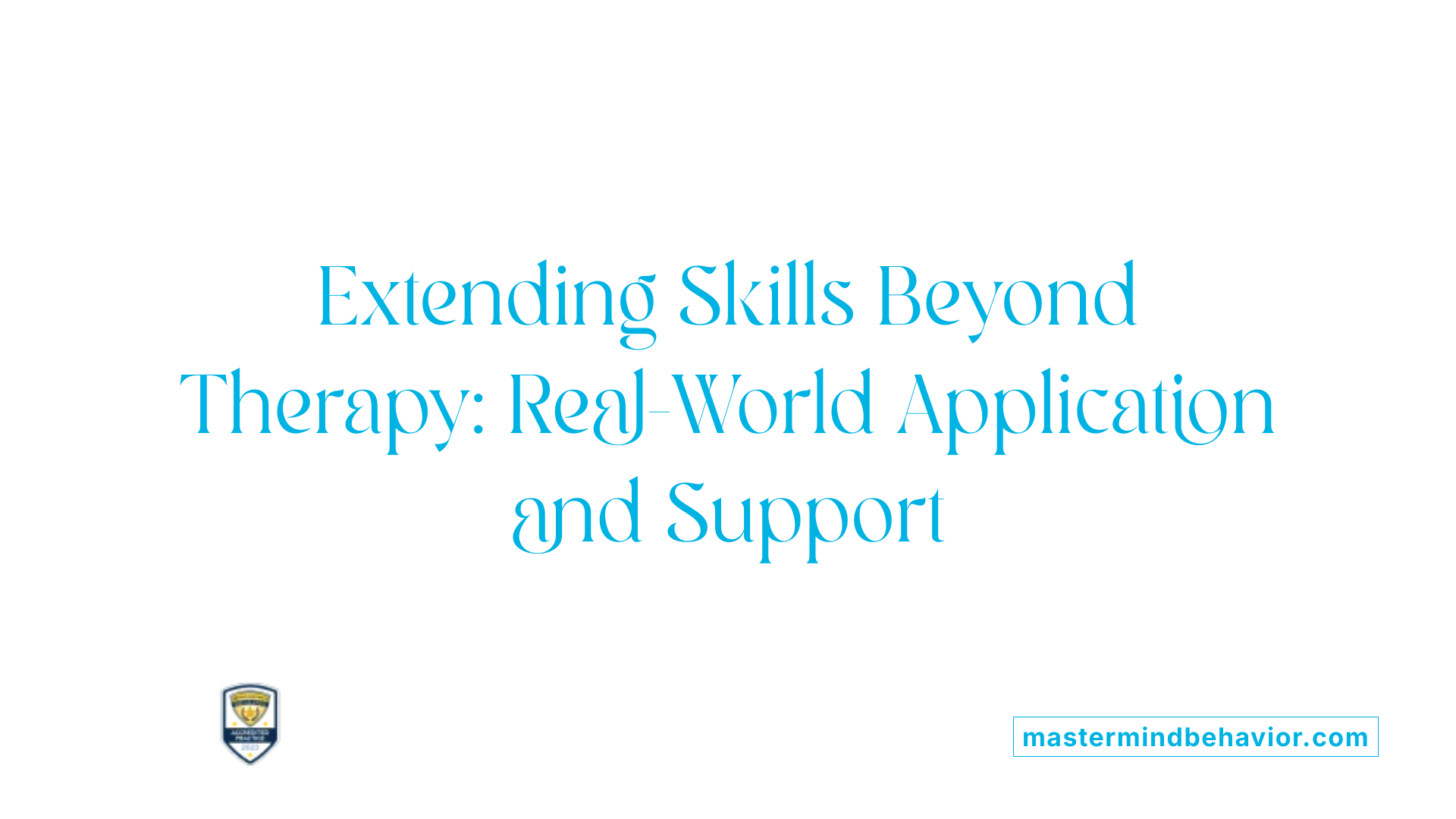
How does ABA therapy ensure conflict resolution skills are generalized and maintained?
ABA therapy focuses strongly on the generalization and maintenance of social skills, including conflict resolution, by extending learning beyond the therapy room into everyday environments. Therapists actively involve parents, teachers, and caregivers in the process, equipping them with strategies to support the child's skill application in natural settings like home, school, and communities.
Creating real-world practice scenarios is a core approach within ABA. These designed social situations allow children to apply newly learned skills within contexts they commonly encounter. For example, therapists may simulate playground disputes or classroom interactions, teaching children to recognize social cues, express themselves appropriately, and resolve conflicts amicably.
Training caregivers and educators is essential for sustaining positive outcomes. Through workshops and coaching, these adults learn methods to prompt appropriate behavior, reinforce desired responses, and manage challenging situations consistently. This consistency helps children generalize social skills across multiple environments and interactions.
In summary, ABA therapy's success in generalizing conflict resolution skills hinges on collaborative efforts between therapists and caregivers, structured social practice, and ongoing reinforcement within the child's daily life. These strategies collectively empower children to navigate social challenges with greater independence and confidence.
The Synergistic Impact of ABA Therapy Within Comprehensive Treatment Models
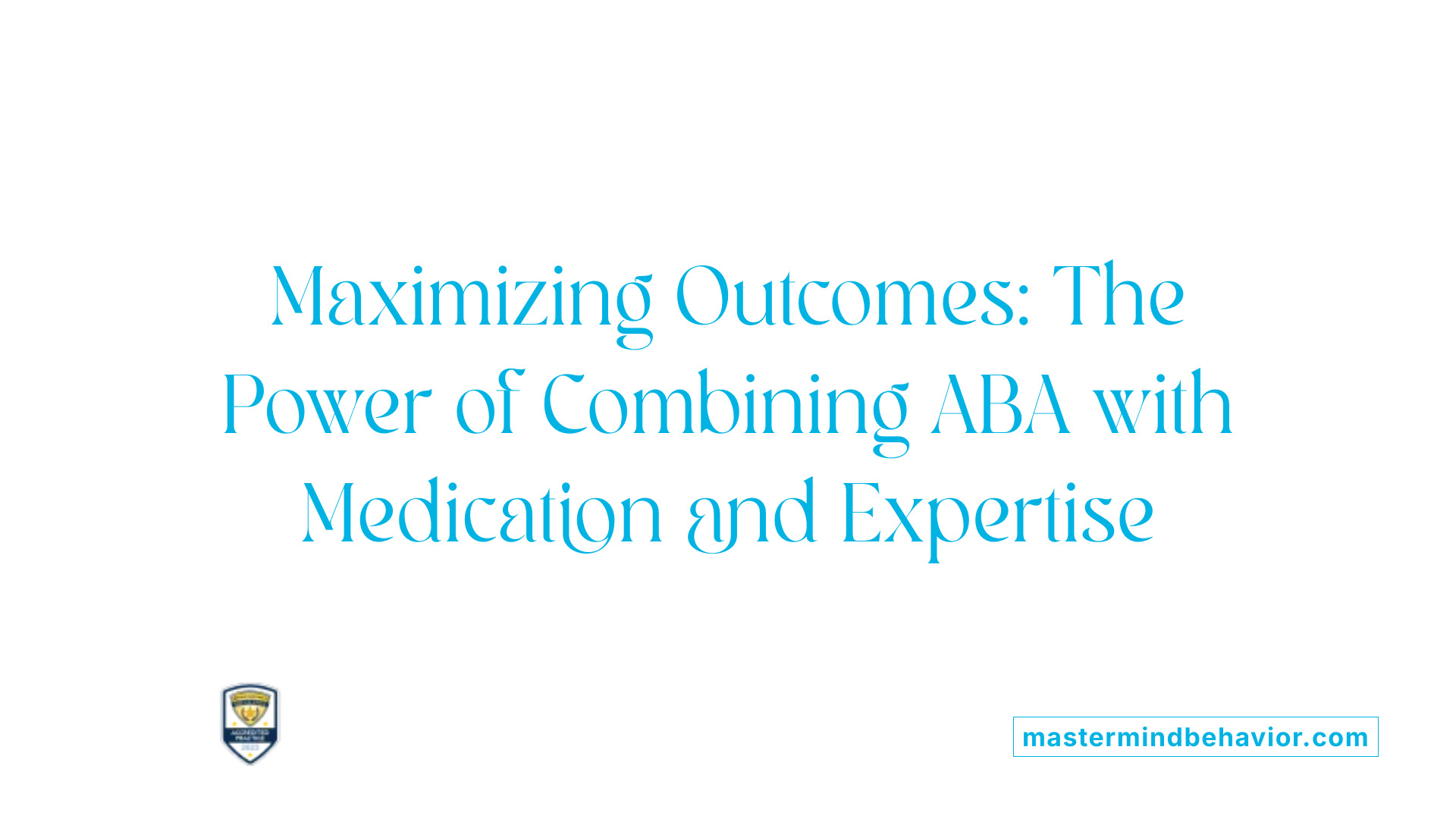
How does ABA therapy complement other treatments for children with behavioral challenges?
ABA therapy serves as a vital component within a comprehensive treatment plan for children with ADHD and other behavioral challenges. When combined with medication, research indicates a significant improvement in managing day-to-day difficulties. Medication addresses neurological aspects, while ABA targets behavioral skills, impulsivity, and social interactions.
Combining ABA and Medication for Enhanced Outcomes
Studies have shown that children receiving both ABA therapy and medication exhibit greater behavioral improvements than those with medication alone. ABA focuses on teaching replacement behaviors, strengthening social skills, and reducing disruptive actions. This layered approach directly addresses the complexity of ADHD symptoms.
Addressing Negative Interactions and Impulsivity
Children with ADHD often experience frequent negative social interactions and impulsive behaviors. ABA strategies, such as differential reinforcement and self-management training, help reduce these challenges by promoting appropriate responses and conflict resolution skills. Structured social skills training further improves communication and cooperative play.
The Role of Experienced BCBAs
Experienced Board Certified Behavior Analysts (BCBAs), like Michelle Chrzczonowski-Bischofberger, play a crucial role in guiding effective ABA programs. Her expertise in early intervention, social skills training, and functional behavior assessments ensures that treatment plans are individualized and evidence-based. These comprehensive programs work hand in hand with other treatments to maximize benefits for children across various settings.
| Aspect | Role in Treatment | Impact on Child's Outcomes |
|---|---|---|
| ABA Therapy | Teaches social, communication, and behavioral skills | Improves impulsivity, reduces negative interactions |
| Medication | Manages neurological symptoms | Enhances focus and reduces hyperactivity |
| Experienced BCBAs | Develops and monitors personalized plans | Ensures effective, tailored interventions |
| Combination Approach | Integrates behavioral and medical strategies | Leads to superior overall management of ADHD symptoms |
ABA Therapy: Building Foundations for Lifelong Social Harmony
ABA therapy offers powerful tools to support children in mastering conflict resolution skills by focusing on observable behaviors and social interactions. Through tailored assessments, evidence-based techniques, structured social skills training, and caregiver involvement, children learn to communicate effectively, manage impulses, and resolve conflicts constructively. Integrating ABA therapy within comprehensive treatment plans enhances the potential for sustained social success, equipping children with abilities that nurture positive relationships throughout their lives.

